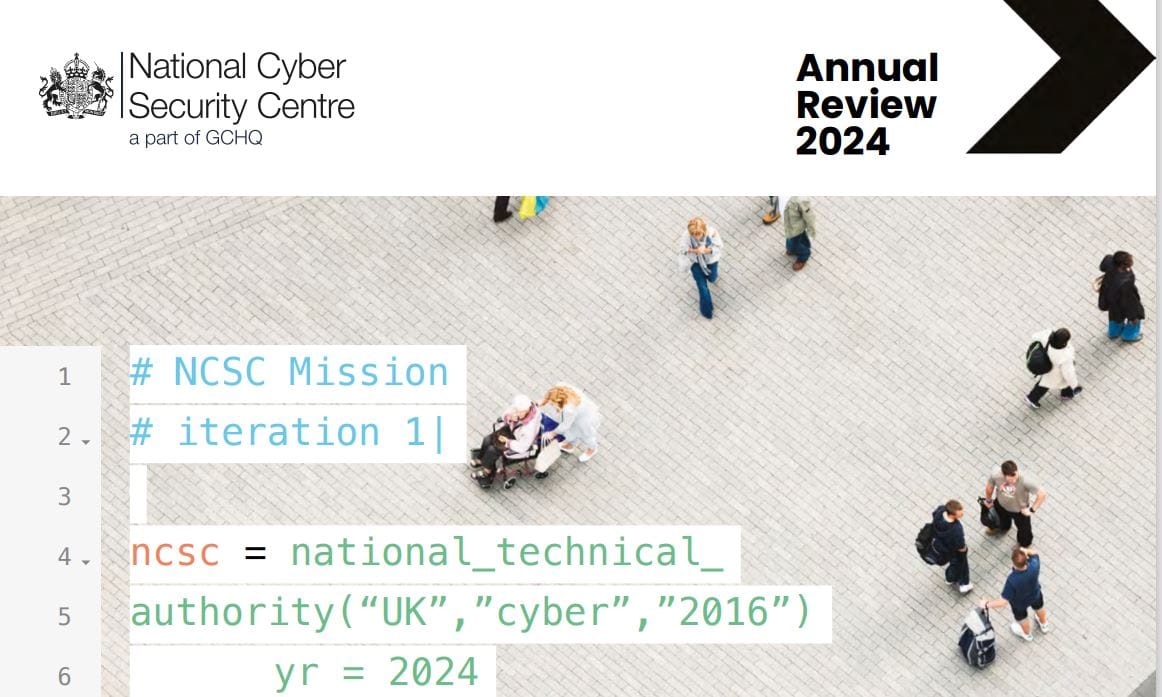UK's NCSC review underscores AI's transformative impact on cybersecurity challenges
The NCSC's 2024 review spotlights AI as a critical factor reshaping cybersecurity. While celebrating election security and partnerships, it warns of AI's role in escalating cyber threats, including advanced ransomware and intrusion tools.

LONDON, Dec. 10, 2024 — The United Kingdom's National Cyber Security Centre (NCSC) published its 2024 Annual Review, highlighting strides in cybersecurity resilience and lessons from significant challenges. The review, which emphasizes collaboration between public and private sectors, serves as a roadmap for securing the UK’s digital future.
The NCSC celebrated major achievements, including safeguarding the integrity of the UK’s general election and bolstering cyber resilience for critical national infrastructure. Its collaboration with the Government Cyber Coordination Centre (GC3) enhanced cybersecurity across government departments under the GovAssure framework. The Election Cell, a joint effort of the NCSC and the National Protective Security Authority (NPSA), ensured a secure election process, free from significant cyber interference.
Progress in public-private partnerships was evident in the implementation of Cyber Essentials and other security frameworks.
Businesses adopting these measures were found to be 92% less likely to file cyber insurance claims, showcasing the efficacy of proactive security standards.
Critical Challenges
Despite these successes, the report notes a widening gap between escalating cyber threats and defensive capabilities. Ransomware attacks, particularly targeting academia, manufacturing, and healthcare, remain the most pervasive threats. The June 2024 Synnovis ransomware attack, which disrupted NHS services, exemplifies the stakes.
Additionally, the rise of artificial intelligence (AI) has intensified the complexity of cyber threats. Malicious actors now use AI for reconnaissance, social engineering, and exploitation, demanding new mitigations to keep pace.
The proliferation of commercial cyber intrusion tools has lowered the barriers for less-skilled actors to execute sophisticated attacks, further expanding the threat landscape.
Lessons Learned
The NCSC identified critical lessons for improving resilience. Mass adoption of basic cybersecurity practices across all sectors is essential. The report also highlights the need for enhanced public awareness and training to close the cybersecurity skills gap.
Moreover, geopolitical tensions have amplified threats, with state-sponsored cyber activities from nations like Russia, China, and North Korea targeting UK critical systems. The collaborative Pall Mall Process was launched to address the proliferation of commercial cyber intrusion tools and establish global norms for responsible cyber conduct.
What Needs Immediate Attention in 2025
- Closing the Skills Gap: Expanding training programs like CyberFirst to cultivate a skilled and diverse workforce.
- Advancing AI Resilience: Developing standards and frameworks for AI security to mitigate emerging threats.
- Strengthening Partnerships: Deepening international collaboration to counter ransomware and other cross-border threats.
- Critical Infrastructure Protection: Prioritizing the security of energy, health, and transport sectors to mitigate potential risks.
The NCSC’s efforts underscore unified action in tackling the evolving cyber threat landscape. As CEO Richard Horne emphasized, "The challenge is growing harder, but together, we can make the UK the safest place to live and work online."



